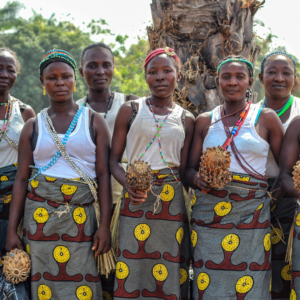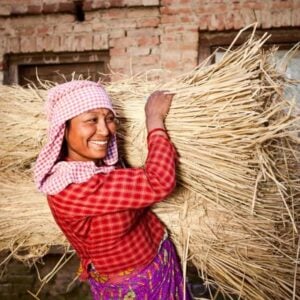In May, Cathy Gumbo from Chisamba District in Zambia shared her story. At just 16 years old, she faced difficulties staying in school because her family could not always afford essentials like uniforms, books, and sanitary supplies. With a bursary from the GEWEL Project, Cathy now attends school regularly and is beginning to plan for her future. Similarly, Bertha, a young mother, is pursuing a nursing certificate, while Doreen Zyambo, 55, transformed her uncertain income as a vendor into a small enterprise through training, seed capital, and mentorship. These stories illustrate how targeted support for women and girls can create pathways out of poverty, benefiting not only individuals but also their families and communities.
Despite such successes, poverty remains deeply entrenched in Zambia’s rural areas. Adolescent girls face high dropout rates, women struggle to access capital, markets, and skills training, and maternal and child undernutrition remains widespread. These challenges reinforce one another, limiting learning, growth, and future earnings. Fragmented interventions and gaps in service delivery mean much of Zambia’s human capital potential remains untapped, with persistent obstacles from early childhood through adulthood.
To address these challenges, the government, in collaboration with partners, is building on the achievements of the first phase of the Girls’ Education and Women’s Empowerment and Livelihoods Project (GEWEL). The second phase, GEWEL2, launched in May 2025 with $157 million in financing, aims to expand efforts nationwide through an integrated approach that links cash transfers, education, nutrition, and livelihoods. The project focuses on creating concrete pathways for vulnerable populations, especially communities where girls’ education is at risk and livelihood opportunities are limited.
GEWEL2 integrates multiple strategies to achieve its goals. The program strengthens social cash transfers and nutrition support to address food insecurity, undernutrition, and early childhood development, benefiting at-risk mothers and infants. It provides subsidies and vocational opportunities for adolescent girls to ensure they remain in school, gain skills, and pursue higher education or entrepreneurial ventures. Women’s livelihoods are supported through training in business and climate-smart agriculture, seed capital, savings groups, mentorship, and access to markets and value chains, enhancing economic independence and resilience. The project also emphasizes institutional strengthening, using digital tools, dynamic registries, and grievance mechanisms to improve social protection delivery and adaptive responses to climate and economic shocks.
The impact of GEWEL2 is already evident. Girls are staying in school, women are earning and saving, families are experiencing better nutrition, and local governments are engaging with a system that reaches those previously left out. As the project expands to all 116 districts, maintaining quality, consistency, and accountability is essential. Building effective systems must be accompanied by sustained trust, predictable delivery, and adaptation to climate and economic challenges to ensure every girl can stay in school, every woman can earn a living, and no household is left behind.
GEWEL2 is supported by the World Bank, the Global Financing Facility for Women, Children, and Adolescents, and trust fund donors, including Germany, Ireland, Sweden, Switzerland, and the United Kingdom.







